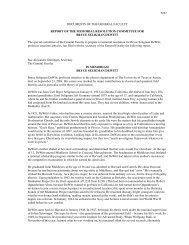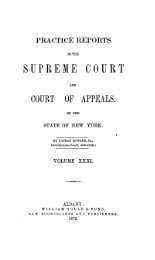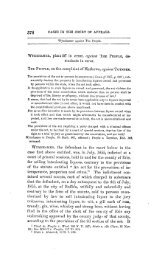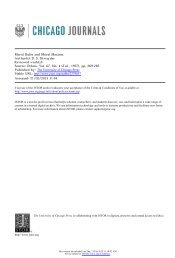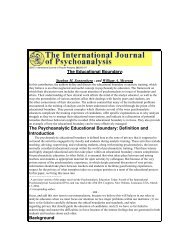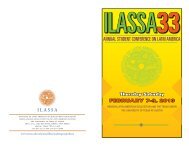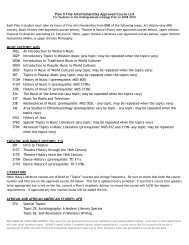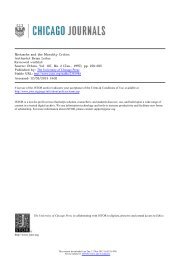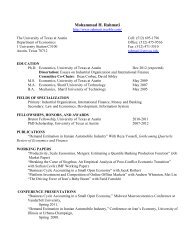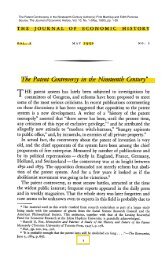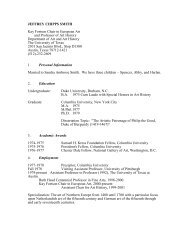Copyright by Gregory Krauss 2007 - The University of Texas at Austin
Copyright by Gregory Krauss 2007 - The University of Texas at Austin
Copyright by Gregory Krauss 2007 - The University of Texas at Austin
You also want an ePaper? Increase the reach of your titles
YUMPU automatically turns print PDFs into web optimized ePapers that Google loves.
win the ideological b<strong>at</strong>tle against the Communists, both <strong>by</strong> denying Communist<br />
governments an opportunity to portray the U.S. as fearful <strong>of</strong> leftist political<br />
philosophy and <strong>by</strong> increasing the number <strong>of</strong> L<strong>at</strong>in American visitors who stood to be<br />
favorably impressed <strong>by</strong> the United St<strong>at</strong>es.<br />
Much <strong>of</strong> Lister’s ability to affect policy occurred <strong>at</strong> the interpretive level. <strong>The</strong><br />
cables he sent out to embassies to clarify certain policies provided him an opportunity<br />
to shape those policies—for example, on the thre<strong>at</strong> <strong>of</strong> guerilla warfare in Bolivia.<br />
Moreover, when speaking to students, Lister claimed to be trying to remove some <strong>of</strong><br />
their misconceptions about U.S. foreign policy. Many <strong>of</strong> the “misconceptions” he<br />
addressed, however, were not misconceptions, but r<strong>at</strong>her a true reflection <strong>of</strong> certain<br />
strands in U.S. foreign policy thinking—for example, the “misconception” th<strong>at</strong> the<br />
U.S. cares if a country is economically socialist or capitalist. Lister’s speeches and<br />
public<strong>at</strong>ions may have served not only to influence L<strong>at</strong>in American audiences, but<br />
perhaps also to pressure U.S. foreign policymakers to take a nuanced approach to<br />
fighting Communism<br />
All in all, <strong>by</strong> 1973, Lister could probably have considered his career to have<br />
been moder<strong>at</strong>ely successful. Although he had never risen to become an Ambassador<br />
or a top St<strong>at</strong>e Department <strong>of</strong>ficial, he had helped stop the advance <strong>of</strong> Communism<br />
into Western Europe, particularly in Italy. He had also developed a strong record<br />
comb<strong>at</strong>ing Communist influence in L<strong>at</strong>in America. At 60, he was eligible for<br />
retirement from the Foreign Service. But Lister still had more energy left. He had yet<br />
50




